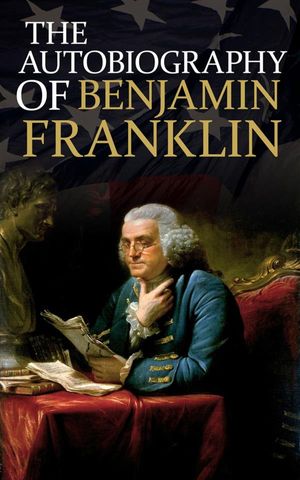
Benjamin Franklin’s auto-biography is a historical account of what today would be called a “Productivity expert” or “Performance coach”. It is extremely interesting to see how he introduces many of the personal productivity practices that these contemporary social media phenomena are promoting. It is refreshing to see how someone can write about these ideas and practices in a completely unbiased manner without the need to please a YouTube algorithm or attract attention. In the following I would like to discuss some of the practices that Franklin describes in his book that resonated well with me or that reminded me most clearly of the modern YouTube counterparts’ videos.
Franklin was writing and maintaining a plan for his life. He wrote this plan at a very young age; not saying exactly when, but one can assume that it was before he turned 21. To his own surprise as he stated he also actually followed this plan very closely his entire life. It would be interesting to know here whether this was because he actually reviewed the plan and managed his daily business according to the plan or whether he was simply living his life according to his virtues which were implicitly embodied in the plan?
Besides the life plan, Franklin also had a plan for every single day. This seems to resemble something that Cal Newport would probably refer to as time-box planning. Franklin, in his book, gives and example of how a typical day in his life is planned and conducted. He has clear time blocks for particular tasks and practices. He acknowledges that it is sometimes difficult to adhere to the plan as he is in a business where customers can show up unexpectedly.
He was using a notebook to journal. Franklin describes a little notebook that he was taking with him everywhere he goes. He used the notebook to jot down any notes or fleeting ideas that he might encounter during the day. This resonates well with the general notion of a bullet journal or daily writing practice. Franklin was a prolific writer, entrepreneur, and inventor. It seems that this journaling habit was key to his success.
Franklin set up a writing and discussion group in Pennsylvania. He gathered several of the most educated, eloquent, and industrious people in the city and organised a regular meeting with them. In these meetings they would discuss topics such as politics, philosophy, and science. Members of the group were also encouraged to produce and present pieces of their writing on topics they discussed. This discussion group resembles closely what today would be referred to as a mastermind group or more traditionally a reading or writing group.
Franklin established a set of 13 virtues that he wanted to live his life by:
- Temperance: Eat not to dullness; drink not to elevation
- Silence: Speak not but what may benefit others or yourself; avoid trifling conversations
- Order: Let all your things have their place; let each part of your business have its time
- Resolution: Resolve to perform what you ought; perform without fail what you resolve
- Frugality: Make no expense but to do good to others or yourself; i.e., waste nothing
- Industry: Lose no time; be always employed in something useful; cut off all unncessary actions
- Sincerity: Use no hurtful deceit; think innocently and justly, and, if you speak, speak accordingly
- Justice: Wrong none by doing injuries, or omitting the benefits that are your duty
- Moderation: Avoid extremes; forbear resenting injuries so much as you think they deserve
- Cleanliness: Tolerate no uncleanliness in body, cloaths or habitation
- Tranquility: Be not disturbed at trifles, or ar accidents common or unavoidable
- Chastity: Rarely use venery but for health or offspring, never to dulness, weakness, or the injury of your own or another’s peace or reputation
- Humility: Imitate Jesus and Socrates
With regards to the virtues of frugality and industry he noted further that he didn’t only pay attention to live by those virtues, but that he also made sure that others saw him as frugal and industrious. He emphasised, for example, that reading was his only form of amusement that he engaged in and that even that was seen as part of his job as a printer.
Franklin explained that he didn’t try to live by all 13 virtues simultaneously. Instead he ordered the list (in the order above) and started focusing on the first virtue. As soon as he thought he mastered the particular virtue he moved on to the next one. The order of the 13 virtues represents the ease of mastering all 13 as Franklin thought some virtues will have compounding effects on mastering others. Furthermore, he described that he put in place a daily review habit for the 13 virtues. In that review, he used another notebook to record his progress towards the virtues and reflect on it.
Finally, he described a system for what appears to be a deliberate writing practice. He explains that he always wanted to write but didn’t receive the education to be a good writer. So he developed a self-learning practice to improve his writing skills. He used texts from articles that he enjoyed reading and authors’ that he admired and tried to learn from them. In particular, he developed a systematic approach to extracting key ideas from their texts and then trying to reproduce the whole text based on a simple reading of the key ideas.